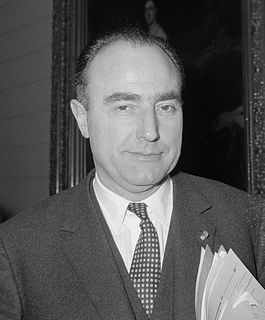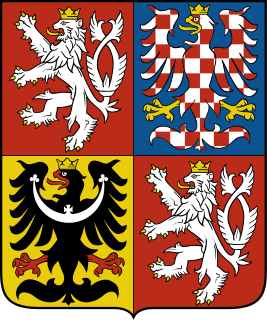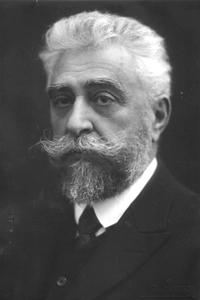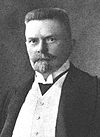
General elections were held in Belgium on 17 February 1946. The result was a victory for the Christian Social Party, which won 92 of the 202 seats in the Chamber of Representatives and 51 of the 101 seats in the Senate. Voter turnout was 90.3%.

General elections were held in Belgium on 1 June 1958. The result was a victory for the Christian Social Party, which won 104 of the 212 seats in the Chamber of Representatives and 53 of the 106 seats in the Senate. Voter turnout was 93.6% in the Chamber election and 93.7% in the Senate election. Elections for the nine provincial councils were also held.

General elections were held in Belgium on 7 November 1971. The result was a victory for the Christian People's Party, which won 40 of the 212 seats in the Chamber of Representatives and 34 of the 106 seats in the Senate. Voter turnout was 91.5%. Elections to the nine provincial councils were also held.

General elections were held in Belgium on 17 April 1977. The result was a victory for the Christian People's Party, which won 56 of the 212 seats in the Chamber of Representatives and 28 of the 106 seats in the Senate. Voter turnout was 95.1%. Elections were also held for the nine provincial councils and for the Council of the German Cultural Community.

General elections were held in Belgium on 8 November 1981. Voter turnout was 94.5% in the Chamber election and 94.6% in the Senate election. Elections were also held for the nine provincial councils and for the Council of the German Cultural Community. They were the first elections after the voting age was lowered from 21 to 18. This contributed to the success of the socialist parties and the green parties. The traditionally largest Christian People's Party saw significant losses, with only 43 of the 212 seats in the Chamber of Representatives.

General elections were held in Belgium on 17 December 1978. The Christian People's Party emerged as the largest party, with 57 of the 212 seats in the Chamber of Representatives and 29 of the 106 seats in the Senate. Voter turnout was 94.8%. Elections were also held for the nine provincial councils and for the Council of the German Cultural Community.

General elections were held in Belgium on 16 November 1919. Although the Belgian Labour Party received the most votes in the Chamber of Representatives elections, the Catholic Party remained the largest party in both the Chamber and the Senate. Voter turnout was 88.5% in the Chamber elections.

General elections were held in Belgium on 20 November 1921. The result was a victory for the Catholic Party, which won 70 of the 186 seats in the Chamber of Representatives. Voter turnout was 91.1% in the Chamber election and 91.0% in the Senate election.

General elections were held in Belgium on 5 April 1925. The result was a victory for the Belgian Labour Party, which won 78 of the 187 seats in the Chamber of Representatives. Voter turnout was 92.8% in the Chamber election and 92.7% in the Senate election.

Parliamentary elections were held in Czechoslovakia on 27 October 1929. The result was a victory for the Republican Party of Farmers and Peasants, which won 46 seats in the Chamber of Deputies and 24 seats in the Senate. Voter turnout was 90.2% in the Chamber election and 78.8% for the Senate.
Parliamentary elections were held in Czechoslovakia on 15 November 1925. The result was a victory for the Republican Party of Farmers and Peasants, which won 45 seats in the Chamber of Deputies and 23 seats in the Senate. Voter turnout was 90.1% in the Chamber election and 77.3% for the Senate.

Constituent Assembly elections were held in Austria on 16 February 1919. The result was a victory for the Social Democratic Workers' Party, which won 72 of the 170 seats. The party was largely supported by the working class, whilst farmers and the middle class voted mainly for the anti-Anschluss Christian Social Party. Voter turnout was 84.4%. It is generally reckoned as the first free election ever held in Austria.

Senate elections for a third of chamber were held in the Czech Republic on 13 and 14 November 1998 with a second round on 20 and 21 November.

Parliamentary elections were held in Portugal on 8 November 1925. The result was a victory for the Democratic Party, which won 83 of the 163 seats in the Chamber of Deputies and 39 of the 70 seats in the Senate. With a military coup the following year and the subsequent Estado Novo period, they were the last truly multi-party elections in the country until the 1975 Constituent Assembly election.

General elections were held in Romania between 25 and 27 May 1920. The result was a victory for the governing People's Party, which won 206 of the 366 seats in the Chamber of Deputies and 124 of the 166 seats in the Senate.

General elections were held in Romania between 1 and 3 March 1922. In the first stage between 1 and 3 March, seats in the Senate were elected. In the second stage between 5 and 7 March the Chamber of Deputies was elected, and in the third and final stage from 9 to 11 March, additional Senate seats were elected. The result was a victory for the governing National Liberal Party, which won 222 of the 372 seats in the Chamber of Deputies and 111 of the 148 seats in the Senate.
General elections were held in Romania in May and June 1926. The Chamber of Deputies was elected on 25 May, whilst the Senate was elected in two stages in May and 10 June. The result was a victory for the governing People's Party, which, together with the allied Romanian National Party–Goldiș, Magyar Party and German Party, won 292 of the 387 seats in the Chamber of Deputies and 107 of the 115 seats in the Senate elected through universal male vote. With some exceptions, the Peasants' Party and the main branch of the National Party ran on common lists under the name of National Peasant Bloc.

General elections were held in Romania in December 1928. The Chamber of Deputies was elected on 12 December, whilst the Senate was elected in three stages on 15, 17 and 19 December. The result was a victory for the governing National Peasants' Party-led alliance, which won 348 of the 387 seats in the Chamber of Deputies and 105 of the 110 seats in the Senate elected through universal male vote. Of the 348 Chamber seats won by the alliance, the National Peasants' Party won 326, the Social Democratic Party won 9, the German Party won 8, the Hungarian People's Party won 2 and three were won by Jewish candidates. It is generally regarded as the freest election ever held in Romania until the 1990s.

General elections were held in Romania in June 1931. The Chamber of Deputies was elected on 1 June, whilst the Senate was elected in three stages on 4, 6 and 8 June. The result was a victory for the governing National Union, an alliance of the National Party, the National Liberal Party, the German Party, the Agrarian Union Party, the Vlad Ţepeş League, the Agrarian League and several other parties. The Union won 289 of the 387 seats in the Chamber of Deputies and 108 of the 113 seats in the Senate elected through universal vote. The five seats won by the Communist-dominated Peasant Workers' Bloc were ultimately invalidated by the new Parliament.

General elections were held in Romania in July 1932. The Chamber of Deputies was elected on 17 July, whilst the Senate was elected in three stages on 20, 24 and 26 July. The result was a victory for the National Peasants' Party-German Party alliance, which won 274 of the 387 seats in the Chamber of Deputies and 104 of the 113 seats in the Senate elected through universal male vote. Of the 274 Chamber seats, 265 were taken by the National Peasant's Party and nine by the German Party.




























